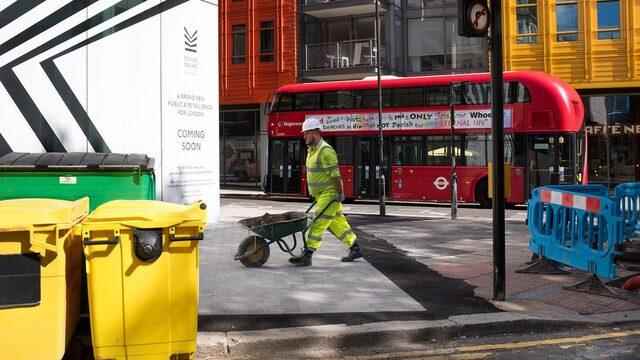The new rule came into effect as a result of expanding the policy that prevents the sharing of private information such as home address without consent.
Opponents say the rule is too broad and “could be used to stifle freedom of expression on the platform”.
However, Twitter stated that it will also evaluate the context in which the photos are shared.
For example, when making a decision, evaluations will be made as to whether the relevant photo already exists in public places, such as news sites, or “whether a particular photo and the accompanying tweet text add additional value to public discussion, are shared for the public benefit, and are relevant to the community.”
Twitter stressed that before removing the photos or taking any action, “the individuals concerned or an authorized representative must give a notice that they do not consent to the sharing of their personal photos or videos”.
“SHOCKING AND SHOCKING”
The response to Twitter messages announcing the new rules was generally critical.
The company later announced that the goal was to prevent videos and photos that “disproportionately affect women, activists, dissidents and members of minority communities” from being used to harass, intimidate or reveal their identities.
Street photographer Nick Turpin said he supports efforts to stop online harassment, but is concerned about the impact it has on those documenting the “public space”.
Turpin’s work, whose work has been widely published and exhibited, often features individuals who are displayed in public spaces without their consent.
Turpin, in a statement to the BBC, stated that many photos he shared on his Twitter account could violate the new rule and said, “This new policy of Twitter is sudden and shocking.”
“Most Twitter users live in democracies where what happens in the public domain is on the public record,” said Turpin.
“This is an important principle and many photographers and filmmakers working in the public sphere will be immediately impacted by this policy change. I can see many people like me abandoning the platform and moving to other services if we are not going to be able to make ‘notifications’ from the public domain in visual form.”
SELECTED OFFICIALS
“Photos/videos showing attendees at public events such as large demonstrations, sporting events, etc. will generally not violate this policy,” Twitter officials said.
Officials further stated that the rule “does not apply to photographs and images featuring public figures, or Twitter texts that are of public interest and add additional value to public discussion.”
Beginning today, we will not allow the sharing of private media, such as images or videos of private individuals without their consent. Publishing people’s private info is also prohibited under the policy, as is threatening or incentivizing others to do so.https://t.co/7EXvXdwegG
— Twitter Safety (@TwitterSafety) November 30, 2021
Twitter noted that public figures may include those who have already written about them in the press, elected officials and political leaders, senior executives, broadcasters, reporters and other public spokespersons.
It was stated that the rule will also not apply to individuals who are the subject of public discussions, online or offline.
Posting nude photos on Twitter without consent was previously prohibited.
The company acknowledged that users may share photos of individuals “to help someone in a crisis situation, such as immediately after a violent incident, to report a newsworthy event in the public interest, and this may outweigh an individual’s safety risks.”
“CENTURY ON THE INTERNET”
However, the nonprofit Big Brother Watch stated that this new rule could be misinterpreted and abused.
“While well-intentioned, Twitter’s new rules are poorly written and far-reaching,” said Mark Johnson, the organization’s legal officer.
“It will inevitably lead to far-reaching censorship on the internet. This new rule will be abused and willfully used to stifle free speech on the platform,” Johnson said.
